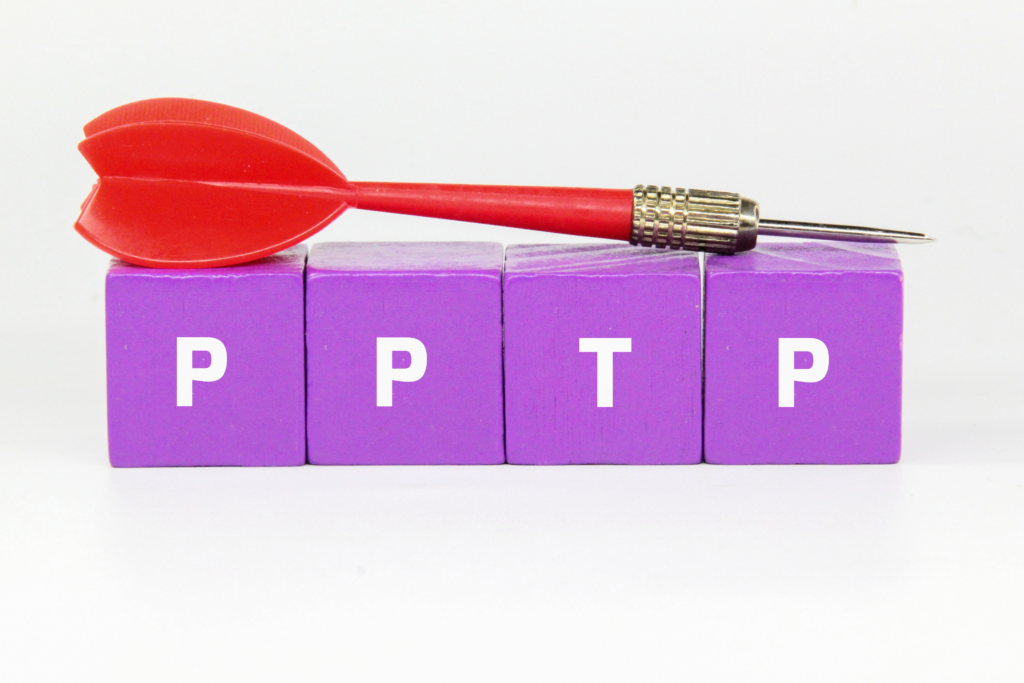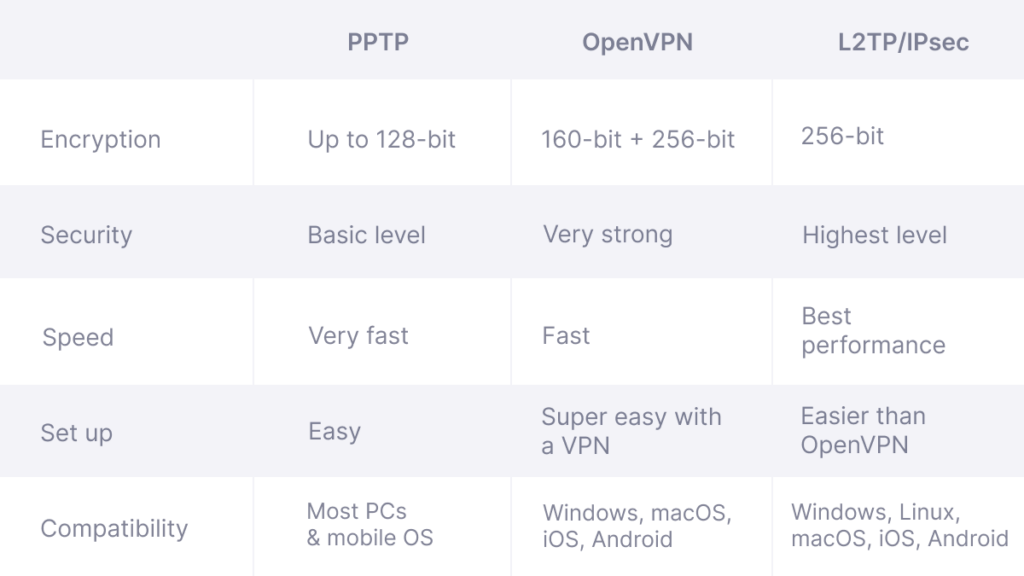

PPTP Explained: Pros And Cons of Using PPTP VPN

PPTP VPN (Point-to-Point Tunneling Protocol) is a type of VPN protocol that allows users to connect to a private network over the internet securely.
One of the main advantages of PPTP is its ease of setup, making it a popular choice for users who are new to VPNs. However, PPTP is considered less secure than other VPN protocols such as OpenVPN or L2TP/IPSec.
In this article, we’ll break down everything you need to know about PPTP VPN, including what it is, how it works, and whether it’s a good choice for your VPN needs.
What is PPTP?
PPTP is one of the oldest VPN protocols. It was created by Microsoft in the 1990s.
PPTP is relatively easy to set up and use. It is known for being quite fast, making it a good option for streaming and gaming.
However, it is not as secure as other VPN protocols because it has weaker encryption.
How does PPTP work?
PPTP, or Point-to-Point Tunneling Protocol, is a method for creating virtual private networks (VPNs) that allow users to securely connect to a remote network from anywhere in the world.
The tunnel is created using a series of protocols, including the PPTP protocol and others like the Internet Protocol (IP) and the Generic Routing Encapsulation (GRE) protocol. Once the tunnel is established, all your data is encrypted and sent through it, ensuring that it stays private and secure while in transit.
Think of it like a secret underground tunnel — just like how a tunnel connects two places, PPTP connects two devices in a secure way. It’s like a secret handshake between your device and the VPN server so that your internet connection is hidden from prying eyes.
What makes PPTP so popular?
PPTP is easy to set up and is compatible with a wide range of devices and operating systems. It also provides fast speeds, making it a good choice for streaming and gaming.
Additionally, PPTP is built into many older versions of Windows, which means that it is widely supported and can be easily configured on those systems.
The irony is that PPTP’s lack of strong encryption is exactly the factor that increases speed.
Pros of using PPTP VPN
High speed. One of the main benefits of using PPTP. PPTP has a small overhead due to its weak encryption standard, which allows for faster data transfer.
Easy setup. A great option for users who are not very tech-savvy.
Compatibility. PPTP is also widely supported, making it compatible with most devices and operating systems. Furthermore, PPTP is an older protocol, which means that it has been widely tested and is considered to be a stable option.
Cons of using PPTP VPN
Weak encryption. PPTP uses a weak encryption algorithm called MPPE (Microsoft Point-to-Point Encryption), which uses a maximum of 128-bit keys.
This encryption method is considered to be outdated and can be easily cracked by modern computing power.
Additionally, PPTP also uses a method called MS-CHAP v2 for authentication, which has been found to have various security vulnerabilities, making it easy for hackers to intercept and decrypt PPTP VPN connections.
No longer considered safe. PPTP is considered obsolete and has been deemed unsafe for use by many security experts due to its weak encryption and lack of security features.
Not recommended for sensitive data. PPTP is not suitable for protecting sensitive information such as financial or personal data as it does not provide the necessary level of security.
No longer supported by some platforms. Some platforms such as iOS and macOS no longer support PPTP VPN connections, which may limit its usefulness for some users.
PPTP vs other popular protocols

PPTP, IPsec, and OpenVPN are all popular VPN protocols, each with its own benefits and drawbacks.
PPTP is the oldest of the three protocols and is known for its fast connection speeds. This makes it a great option for streaming and gaming. However, PPTP has weak encryption standards, making it less secure than the other two options. It is also not recommended for mobile devices.
IPsec, or Internet Protocol Security, is known for its strong encryption standards and is often used in enterprise settings. It is considered more secure than PPTP, but it can be more difficult to set up and may not be as fast.
OpenVPN is an open-source protocol that is considered to be very secure and versatile. It can work on a wide range of devices and can be customized to meet specific needs.
For an average user, PPTP VPN may be the easiest and fastest option, but it may not be the most secure. IPsec and OpenVPN are more secure options.
Ultimately, the best choice will depend on the user’s specific needs and level of technical expertise.
What protocols does HQ VPN use?
At HQ VPN, we understand that security and speed are both crucial for a smooth and enjoyable online experience. That’s why we’ve chosen to use both OpenVPN and IPSec protocols in our service.
OpenVPN is a highly secure and versatile protocol that uses state-of-the-art encryption methods to protect your online activity. It’s widely considered the industry standard for VPNs and is known for its strong security features. By using OpenVPN, we’re able to ensure that your data is always kept safe and private, no matter what you’re doing online.
But we don’t just stop at security. We also understand the importance of speed. That’s why we’ve paired OpenVPN with IPSec, another protocol known for its fast connection speeds. IPSec is a lightweight protocol that can be easily configured for different types of connections, making it ideal for streaming and gaming.
By using both OpenVPN and IPSec, HQ VPN is able to provide a balance of security and speed that’s unmatched by other VPNs. With HQ VPN, you can enjoy the peace of mind that comes with knowing your online activity is always protected, while still being able to stream and game at lightning-fast speeds.
Try HQ VPN now and experience the best of both worlds!
Bottomline
In conclusion, the optimal choice of VPN protocol will depend on the specific needs and priorities of the user. PPTP offers fast speeds but lacks strong encryption.
OpenVPN provides a balance of security and speed and is considered to be one of the most secure protocols.
IPSec is known for its strong encryption and is often used in business settings.
Ultimately, it is important to weigh the pros and cons of each protocol and choose the one that best meets your needs.
If you prioritize both security and speed in your online activities, then HQ VPN is the optimal choice. With the use of the most secure and fast VPN protocols like OpenVPN and IPSec, HQ VPN offers powerful encryption to keep your data safe.
Additionally, with a huge network of global servers and multi-device support, HQ VPN offers fast and reliable connections for all your devices.
With HQ VPN, you can enjoy the peace of mind that comes with knowing your data is protected, without sacrificing speed.



